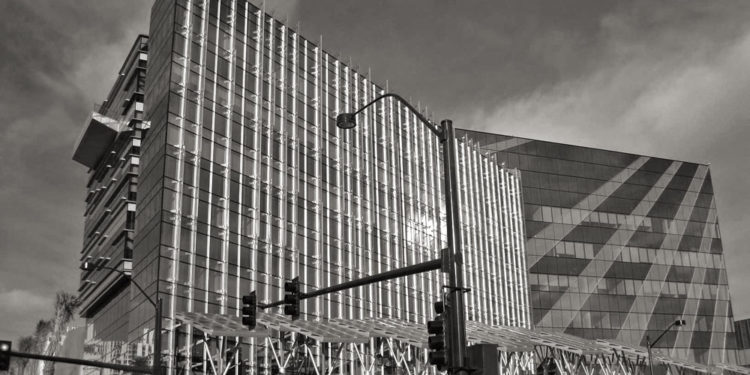To really appreciate Las Vegas Mayor Carolyn Goodman’s recent State of the City address, you need to start with a basic idea: This city was built on risk.
From the first settlers to the casino operators who followed and even the developers remaking downtown over the past several years, the story of Las Vegas is the story of people and companies having a vision and taking a chance.
![]() Risk means reward. Not for everyone and not every time. But the benefits flowing from those striving to do something big and experimental are all around us and part of what makes the city work.
Risk means reward. Not for everyone and not every time. But the benefits flowing from those striving to do something big and experimental are all around us and part of what makes the city work.
Which is why it’s so surprising that Goodman and City Hall seem focused on protecting developers and corporations from risk.
The mayor had good news to tell. From new residential and commercial developments to growth in gaming and hospitality, major initiatives to help the homeless and growth in the medical district, Goodman’s presentation was a hit parade.
But it was also a laundry list of deals and incentives that all share a common theme, a sort of benign paternalism that ultimately comes down to: We’re from City Hall, and we know best. There’s still risk. But increasingly, it’s transferred away from project owners and onto taxpayers.
We like to think Las Vegas is different — and it is. But we’re not so different that trends visible across the nation have no impact here.
So what do we know?
We know more than a third of the U.S. workforce is involved in the gig economy — from Uber drivers to freelancers, AirBnB owners and others — and that percentage is on an upswing. Las Vegas and city halls across America like big, shiny projects because they look good in the headlines and there’s a lot of political power in playing gatekeeper. But for hundreds of thousands of people here, good economic development likely means getting City Hall out of the way, not spending millions of taxpayer dollars to subsidize a new headquarters.
We also know neither Las Vegas nor any large city in America fully covers its long-term infrastructure costs. Those 17,000 new residences in Summerlin West may bring new residents and welcome revenue to the city, but the roads and utility infrastructure are a long-term liability. Saddling our children and grandchildren with a bill tomorrow for benefits we enjoy today is one of the most immoral things City Hall or any government can do.
Finally, we know a lot of money is wasted. Las Vegas spends hundreds of millions of dollars on developer incentives and deals, including tax increment financing, a tool local governments have abused so thoroughly that California, the state that invented the approach, eventually outlawed them. Research from the W.E. Upjohn Institute shows that, overwhelmingly, most would have made the relocation and expansion decisions they ultimately made without incentives.
But back to Goodman. One of the mayor’s few defensive moments came over controversial new ordinances banning camping and sleeping in public areas, measures that directly impact the homeless. Declaring she wouldn’t see Las Vegas become a “skid row harbor” like “other cities in the 9th Circuit Court of Appeals” — a slap at Los Angeles and San Francisco — Goodman declared that the city was showing compassion toward its exploding homeless population.
It’s tempting to praise any effort to help the city’s most vulnerable. But it’s hard to miss that the city’s build-big model for economic development is also what drives its approach to social services.
Would the millions being spent on a new low-barrier shelter in the Corridor of Hope have better served the city’s homeless if the money were allocated to smaller organizations experimenting with a variety of approaches? We don’t know. Because that’s not how we do things here.
Goodman embraces civic paternalism. Saying elected officials in city government are “responsible” for (not “to” — “for”) the voters they serve and claiming that it is the job of city government to “show compassion,” are good throwaway lines, but they’re not what government should do or what it does well.
Mayor Goodman and the city government took a victory lap on Jan. 9. And while they deserve credit for getting a lot done, it’s fair to ask if the current let’s-make-a-deal environment is helpful over the long term or necessary in the short term.









